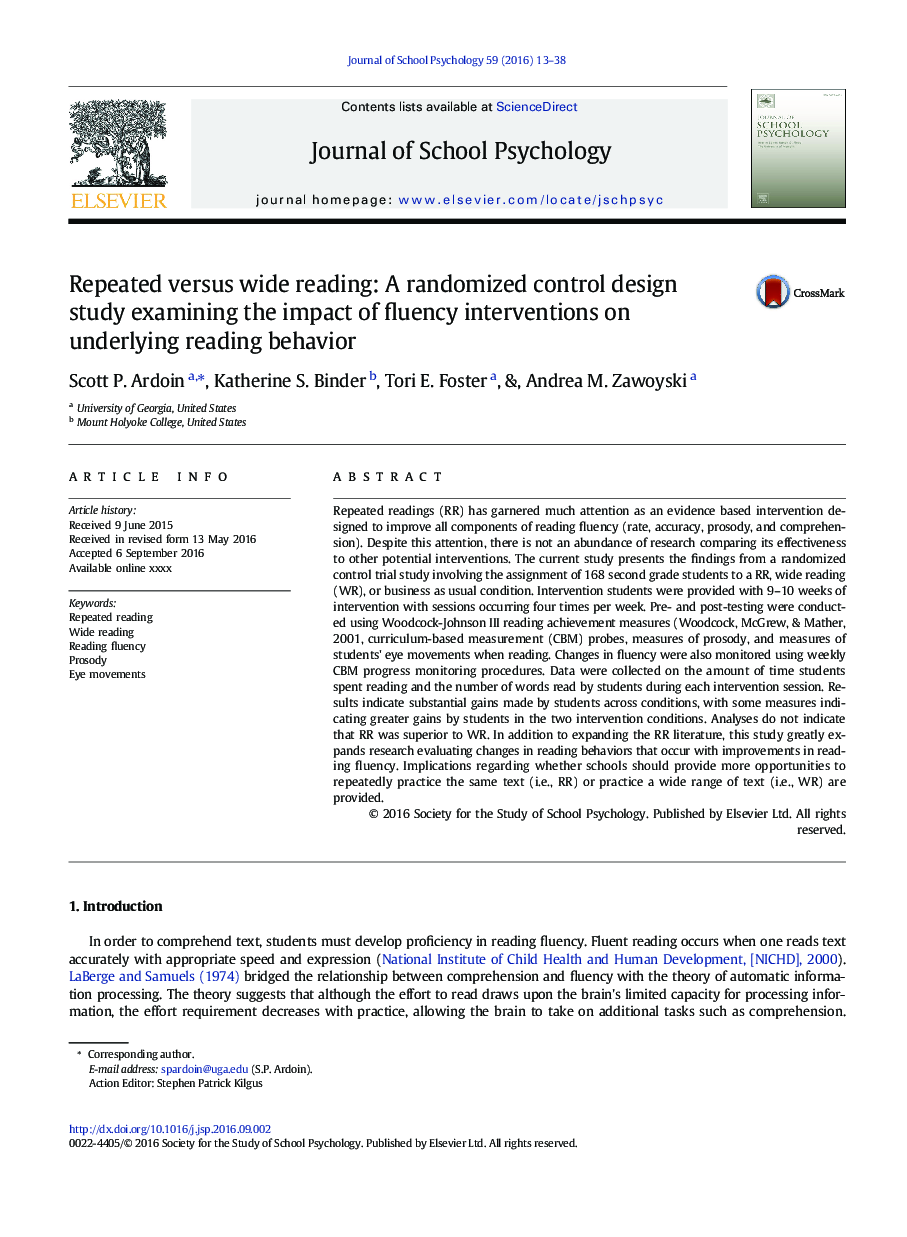| Article ID | Journal | Published Year | Pages | File Type |
|---|---|---|---|---|
| 4939811 | Journal of School Psychology | 2016 | 26 Pages |
Abstract
Repeated readings (RR) has garnered much attention as an evidence based intervention designed to improve all components of reading fluency (rate, accuracy, prosody, and comprehension). Despite this attention, there is not an abundance of research comparing its effectiveness to other potential interventions. The current study presents the findings from a randomized control trial study involving the assignment of 168Â second grade students to a RR, wide reading (WR), or business as usual condition. Intervention students were provided with 9-10Â weeks of intervention with sessions occurring four times per week. Pre- and post-testing were conducted using Woodcock-Johnson III reading achievement measures (Woodcock, McGrew, & Mather, 2001, curriculum-based measurement (CBM) probes, measures of prosody, and measures of students' eye movements when reading. Changes in fluency were also monitored using weekly CBM progress monitoring procedures. Data were collected on the amount of time students spent reading and the number of words read by students during each intervention session. Results indicate substantial gains made by students across conditions, with some measures indicating greater gains by students in the two intervention conditions. Analyses do not indicate that RR was superior to WR. In addition to expanding the RR literature, this study greatly expands research evaluating changes in reading behaviors that occur with improvements in reading fluency. Implications regarding whether schools should provide more opportunities to repeatedly practice the same text (i.e., RR) or practice a wide range of text (i.e., WR) are provided.
Keywords
Related Topics
Social Sciences and Humanities
Psychology
Applied Psychology
Authors
Scott P. Ardoin, Katherine S. Binder, Tori E. Foster, Andrea M. Zawoyski,
